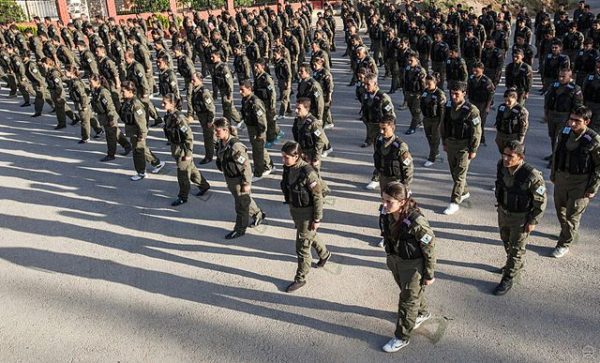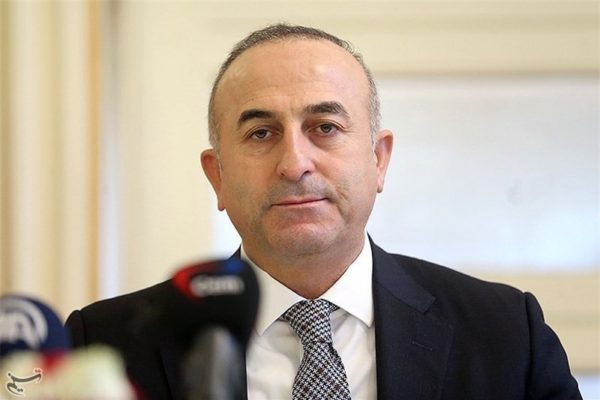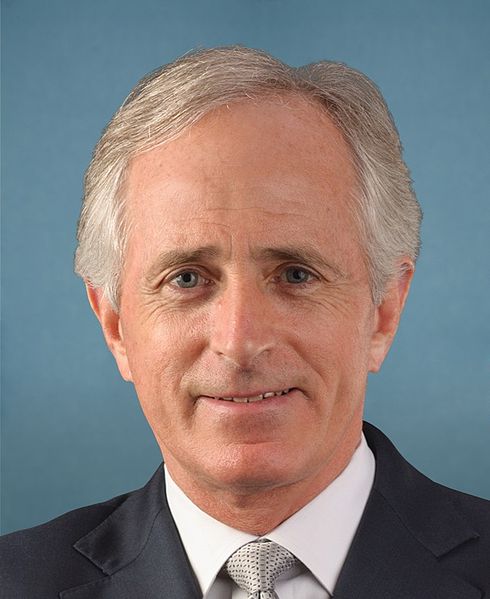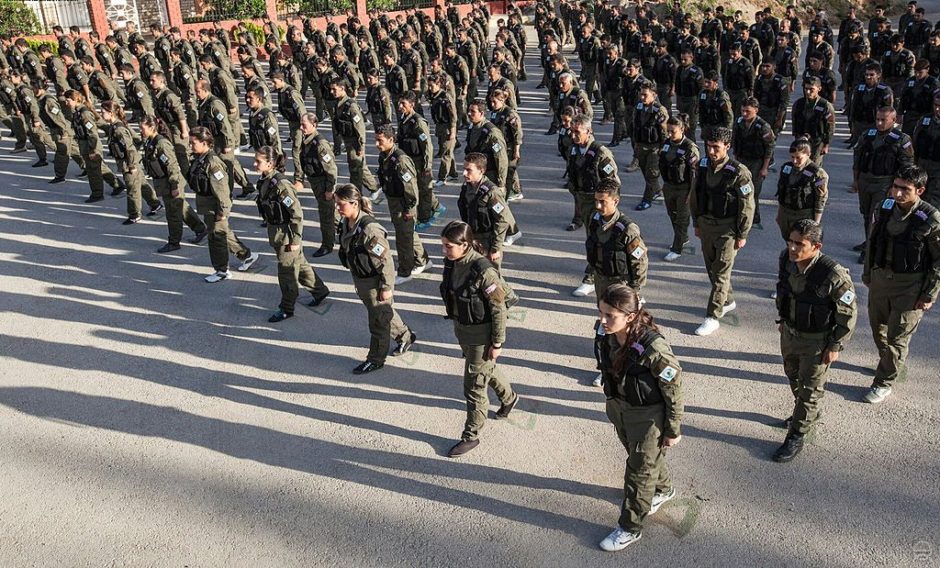Donald Trump and Recep Tayyip Erdogan conferred at the White House on May 16 to discuss what is surely the most contentious irritant in the prickly U.S.-Turkish bilateral relationship — the arming of Syrian Kurdish rebels by the United States.
Turkey, a key U.S. ally and a member of NATO that shares a volatile border with Syria, strongly opposes Washington’s recent decision to send heavy weapons to the YPG, the People’s Protection Units. But Trump and Erdogan diplomatically skirted this explosive issue at a press conference in the wake of their meeting, their first, in Washington, D.C. Instead, they focused on the need to jointly confront Islamic extremism, particularly Islamic State, in the Middle East.

Erdogan expressed criticism of the YPG, saying “there is no place for terrorist organizations in the future of our region.” But he refrained from criticizing Trump’s presidential order to send armored vehicles, as well as anti-tank missiles, machine guns and mortars, to the YPG.
In recent months, the YPG has been at the centre of military efforts by Syrian rebels and the United States to oust Islamic State from the eastern Syrian city of Raqqa, the de facto capital of its self-declared caliphate. Islamic State captured it in 2014, three years after the eruption of the civil war in Syria, whose end is hardly in sight.

For his part, Trump — the only Western leader to congratulate Erdogan on his narrow victory in last month’s constitutional referendum on changing Turkey’s political system and thereby enhancing Erdogan’s powers — lavished praise on Turkey as a bulwark against Islamic radicalism.
Tellingly enough, Trump made no reference to Erdogan’s crackdown on the news media since last July’s failed coup in Turkey. Nor did he mention Turkey’s demand for the extradition of self-exiled Islamic cleric Fethullah Gulen, who lives in Pennsylvania. Erdogan claims that Gulen, the head of a moderate Islamic movement, was the mastermind behind the coup, which led to a massive and unprecedented purge of the Turkish armed forces, the civil service, the judiciary, schools and universities.

In effect, Turkey and the United States, which are both actively involved in supporting forces opposed to the regime of Syrian President Bashar al-Assad, agreed to disagree over these pivotal issues.
Much to Turkey’s disappointment, the United States considers the YPG an efficient and seasoned fighting force essential to the liberation of Raqqa. Turkey regards the YPG as a terrorist organization and an arm of its foremost enemy, the separatist Kurdistan Workers’ Party, or PKK, which has waged a violent campaign for Kurdish independence inside Turkish territory since 1984.
Despite Turkey’s demonization of the YPG, it has emerged as one of the United States’ most reliable allies in the battle to recapture Raqqa.
General Stephen Townsend, the head of the American-led coalition ranged against Islamic State in Syria and Iraq, claims that the YPG, fighting under the umbrella of the Syrian Democratic Forces, is an essential component of its strategy to seize Raqqa.
Cognizant of Turkey’s conflict with the Kurds, the Pentagon has portrayed the shipment of weapons to the YPG as a temporary measure to ensure the defeat of Islamic State in Raqqa. The Pentagon has also suggested that the United States has no intention of becoming a long-term arms supplier of the Kurds, the largest ethnic group in the Middle East seeking statehood.
General Joseph Votel, the commander of the U.S. Central Command, has said that the YPG will receive just enough weapons to confront Islamic State successfully. “We could meter things like ammunition,” he added.
Dana White, a Pentagon spokeswoman, has said that the United States is “keenly aware of the security concerns of our coalition partner Turkey. We want to reassure the people and government of Turkey that the U.S. is committed preventing additional security risks and protecting our NATO ally.”
Two months ago, U.S. Secretary of State Rex Tillerson visited Turkey in a bid to assuage its concerns about the United States’ alliance with the YPG.
These assurances did not mollify Turkey.
“I want to believe that Turkey’s allies will side with us, not with terrorist organizations,” said Erdogan said recently in a reference to the YPG. “I hope this mistake will be reversed as soon as possible.”
Turkish Prime Minister Binali Yildirim was just as emphatic. “It is not possible for us to accept an initiative that would mean direct or indirect help to the PKK.”

Turkey’s foreign minister, Mevlut Cavusoglu, is convinced that the YPG is beyond the pale. As he declared, “YPG and PKK are both terror groups, there is no difference at all between them. They only have different names.”
U.S. Secretary of Defence Jim Mattis claims the disagreement can be resolved. The United States may, for example, turn a blind eye to Turkish air strikes against YPG bases in Syria. But it’s a devilishly complex problem. “That’s the $64,000 question,” Senator Tim Kaine of the Senate Foreign Relations Committee’s Middle East panel has said. “How do we work with a NATO ally, how do we support our strongest battlefield partners, how do we do both things at the same time?”
It’s a good question.
It’s clear that U.S. and Turkish interests are “not aligned right now,” as Senator Bob Corker, the chairman of the Senate Foreign Relations Committee, said recently in a comment that succinctly sums up their sharp differences.

